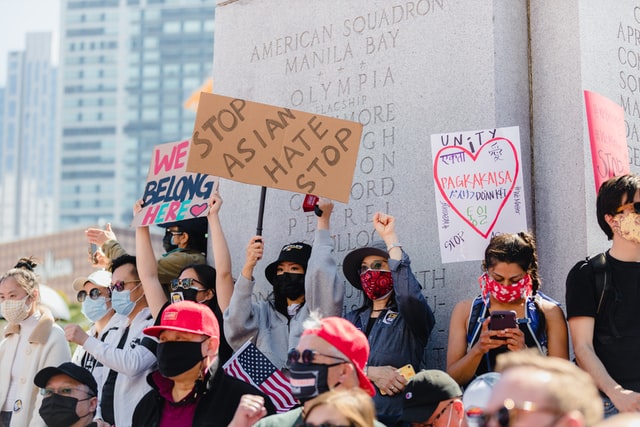
ANTI-Asian hate incidents in the United States continue to occur a year into the pandemic, despite the increase in political and social activism, according to a new report from Stop AAPI Hate, a national coalition that tracks hate and discrimination.
In its national report released Thursday, August 12, Stop AAPI Hate said that it received 9,081 anti-Asian hate incidents from March 19, 2020 to June 31, 2021.
Of the total figure, 4,548 incidents occurred in 2020, while 4,533 took place in the first six months of 2021.
“Our data clearly shows that Asian Americans across the country continue to be attacked, and that the hate incidents that we have been tracking since March 2020 are not going away,” said Manjusha Kulkarni, co-founder of Stop AAPI Hate and executive director of the Asian Pacific Policy and Planning Council.
The report found that 31.6% of the incidents took place in public streets, and 30.1% of the incidents occurred in businesses.
The majority of incidents (63.7%) involved verbal harassment, while 16.5% involved shunning or the deliberate avoidance of Asian Americans and Pacific Islanders (AAPIs) — these two made up the two largest proportions of the total incidents reported.
“A majority of incidents are traumatic and harmful, but not hate crimes,” the report noted.
Physical assault comprised the third-largest category of the total reported incidents with 13.7%, followed by being coughed at or spat on (8.5%).
Meanwhile, civil rights violations such as workplace discrimination, refusal of service, and being barred from transportation accounted for 11% of the reported incidents, while online harassment made up 8.3%.
Stop AAPI Hate noted that 63.3% of the total incidents were reported by women.
Individuals of Chinese descent have reported more hate incidents (43.5%) than all ethnic groups, followed by Koreans (16.8%), Filipinos (9.1%), Japanese (8.6%) and Vietnamese (8.2%).
“When you encourage hate, it’s not like a genie in a bottle where you can pull it out and push it back in whenever you want,” Kulkarni told the Associated Press.
She added, “There’s too much perpetuating these belief systems to make them go away.”
According to the report, hateful languages were included in “nearly half” of all the incident reports.
Of the 9,081 hate incidents, 48.1% included at least one hateful statement regarding anti-China and/or anti-immigrant rhetoric.
“The U.S.-China relations can have implications for the treatment of Asians in the United States as reflected by the use of anti-China statements,” Stop AAPI Hate noted in its report.
Analysis of the reported incidents revealed five different themes of hateful languages: Scapegoating of China, which involved blaming China and Chinese people for COVID-19; Anti-Immigrant Nativism, which involved statements telling Asians they “do not belong” in the U.S.; Orientalist Depictions, which included statements about Asians’ perceived cultural exoticism; racial slurs; and red-baiting.
“We understand that other nation-states are competitors to the United States, and a number of them do have authoritarian regimes,” Kulkarni told the Associated Press.
“But the ways in which we talk about the people and the ways in which blame is assigned somehow looks different for communities of color than it does for, say, the Russian government or the German government,” she added.
This year, U.S. President Joe Biden signed the COVID-19 Hate Crimes Act, which expands the federal government’s ability to address and respond to rises in hate crimes, as the Asian Journal previously reported.
The bill would establish a position at the Justice Department responsible for reviewing reported incidents, helping with the reporting process, and providing grants for public education campaigns dedicated to combating hate crimes.
Any member of the AAPI community who has experienced hate during the pandemic is encouraged to report the incident at: https://stopaapihate.org/reportincident/.






